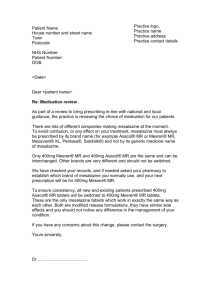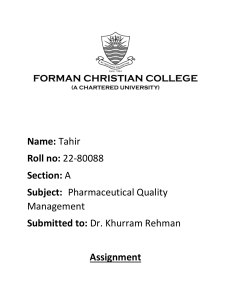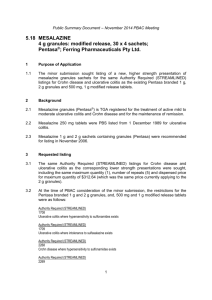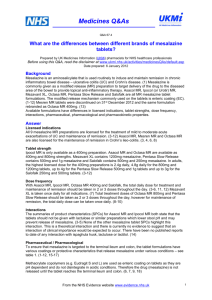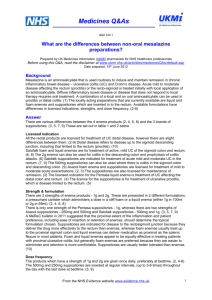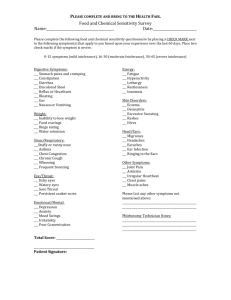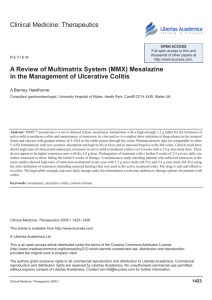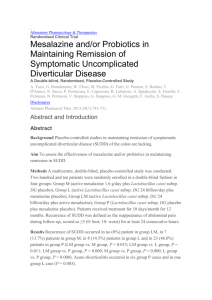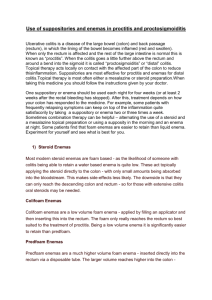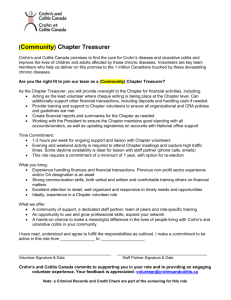Desensitization of patients with ulcerative colitis who are
advertisement
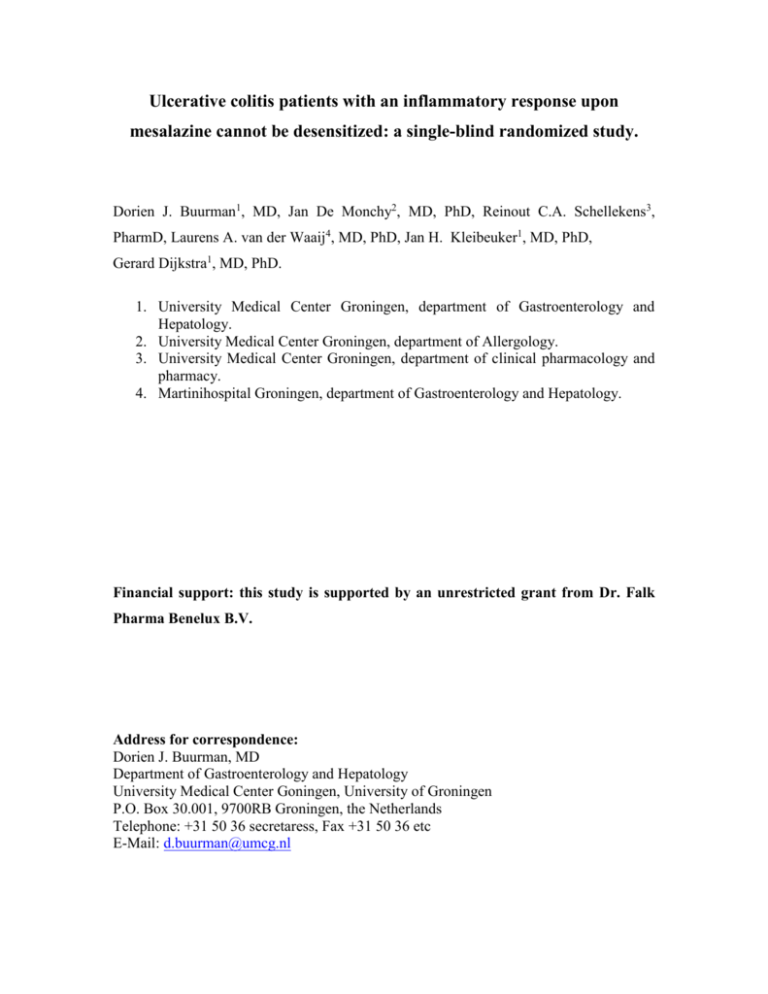
Ulcerative colitis patients with an inflammatory response upon mesalazine cannot be desensitized: a single-blind randomized study. Dorien J. Buurman1, MD, Jan De Monchy2, MD, PhD, Reinout C.A. Schellekens3, PharmD, Laurens A. van der Waaij4, MD, PhD, Jan H. Kleibeuker1, MD, PhD, Gerard Dijkstra1, MD, PhD. 1. University Medical Center Groningen, department of Gastroenterology and Hepatology. 2. University Medical Center Groningen, department of Allergology. 3. University Medical Center Groningen, department of clinical pharmacology and pharmacy. 4. Martinihospital Groningen, department of Gastroenterology and Hepatology. Financial support: this study is supported by an unrestricted grant from Dr. Falk Pharma Benelux B.V. Address for correspondence: Dorien J. Buurman, MD Department of Gastroenterology and Hepatology University Medical Center Goningen, University of Groningen P.O. Box 30.001, 9700RB Groningen, the Netherlands Telephone: +31 50 36 secretaress, Fax +31 50 36 etc E-Mail: d.buurman@umcg.nl Mesalazine containing agents are very important in the treatment of ulcerative colitis (UC). Intolerance to mesalazine has been described, including skin reactions, fever, pneumonitis, interstitial nephritis, and gastrointestinal symptoms. A number of case reports reported successful desensitization of patients with mesalazine intolerance. Aim of this study was to assess the number of patients who are persistently intolerant to mesalazine after single-blind rechallenge and to test the effectiveness of a rapid desensitization protocol in patients with ulcerative colitis with demonstrated mesalazine intolerance. It was a single-center prospective, single-blind randomized study in patients with UC who stopped mesalazine because of intolerance including mild pancreatitis, erythematous skin reactions and fever. Patients with interstitial nephritis, severe pancreatitis, bronchospasm, bullous skin reactions or anaphylactic shock were excluded. Eligible patients underwent a skin patch test with mesalazine in white soft paraffin 0.1, 1 and 10 %, and if negative started with a single-blind randomized crossover rechallenge with 500 mg mesalazine or placebo for 1 week with a three week washout interval. Patients with symptoms upon rechallenge were admitted to the hospital for oral desensitization with an increasing dose of mesalazine (1-3 g) in 3 days. Vital signs, hypersensitivity reactions, CRP, tryptase and urine methyl histamine levels were monitored. Of the 37 UC patients who stopped mesalazine because of intolerance 8 patients participated in this study. All patients had negative patch tests, 2 patients had no symptoms upon blinded rechallenge, and 6 patients had symptoms (fever, nausea, vomiting, and diarrhea) within 2 hours upon rechallenge. Four of these 6 patients participated in the desensitization protocol and none of these patients had a successful desensitization. Upon desensitization with even a low cumulative dose (150 mg) mesalazine all 4 patients had the same reaction pattern with fever, nausea, vomiting, diarrhea and rise of CRP within 3 hours. There were no clinical signs of immediate type allergic reactions, like urticaria, bronchial obstruction or anaphylaxis. Serum tryptase and urinary-methylhistamine did not rise significantly. Conclusions: UC patients with fever, nausea, diarrhea, vomiting and a CRP response upon mesalazine cannot be desensitized with a 3 day desensitization protocol. Keywords: Ulcerative colitis, desensitization, Mesalazine
